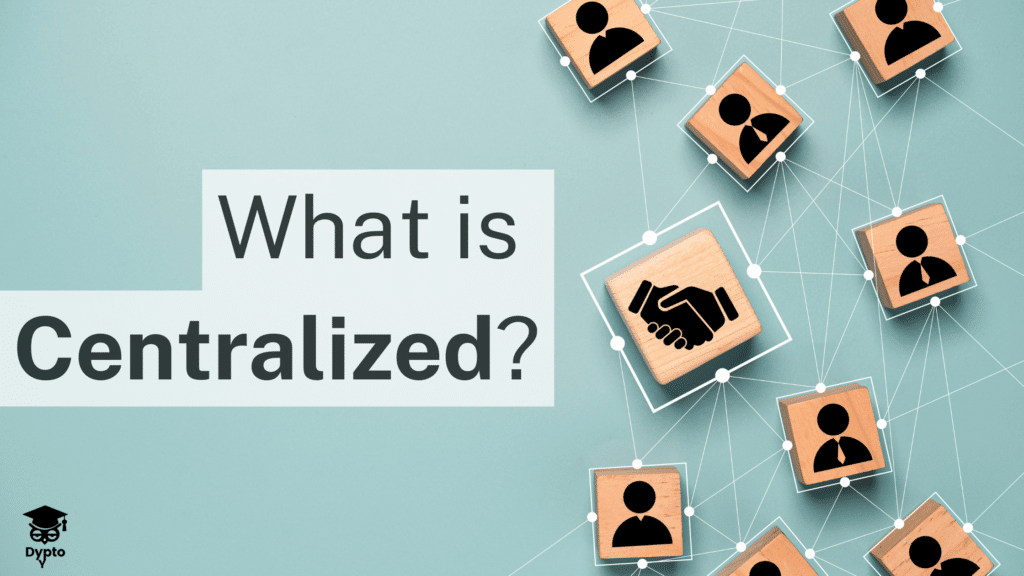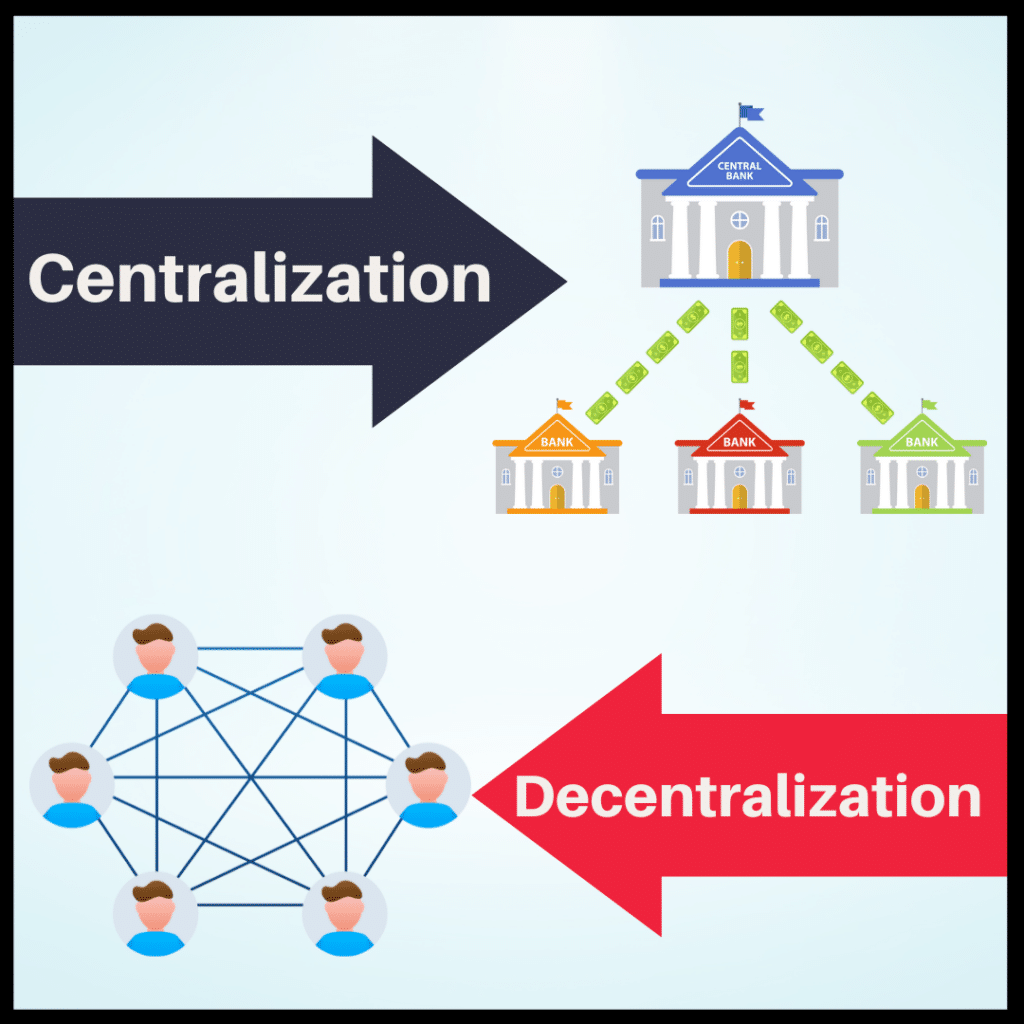What is Centralization?
The term centralization defines a system, entity, or organization where everything is managed in one place.
The Long Definition
Centralization is a term that describes an organization with a structure that puts all the administrative power in one place. It is the opposite of decentralization, which describes an organization in which power is shared among members.
Most companies and businesses have centralized management. This has several benefits, like quick decision-making, a focused vision, and a clear chain of command.
However, there are some disadvantages. For instance, it excludes other stakeholders, like employees and customers, from the decision-making process. It also puts a lot of pressure on the top management.

Understanding Centralization
Centralized bodies have a single authority making all the decisions. They adopt a structure where everything is managed in one place.
In a small organization, you have one owner who manages everything. But if the firm is big enough, there arises a need for distinct levels of management. There will be a CEO, managers, department heads, supervisors, and so on. Here, the top level makes decisions and relays them to lower levels for execution.
Centralization is the dominant model in most industries. Most businesses, firms, and organizations are centralized. This is also the case in crypto, despite the fact that decentralization is the main idea behind cryptocurrencies.
What are the Pros of Centralization?
Companies and businesses enjoy several benefits from centralization. For one, there is a clear chain of command with well-defined roles. Employees know who to report to for directions or concerns. At the same time, senior management officials know where to delegate functions. This allows for a smooth flow of information.
There is also quick decision-making and implementation. This is due to the small number of people involved. Senior executives only have to consult with one another. The resulting process takes less time than getting everyone’s opinion on a matter.
The organization also enjoys a unified vision. Management decides the company’s direction on behalf of everyone else. This leaves little room for conflicting decisions and goals. It also allows the organization to move in a particular direction as one unit.

What are the Cons?
Centralized organizations lack involvement from other stakeholders. For instance, employees, customers, and suppliers are rarely consulted when making decisions. So, the company misses out on great ideas that smart employees or users may have.
Also, having a small group of people making all the critical decisions opens the door to abuse. A good leader will, of course, do what’s best for the organization or community. However, they can also make bad decisions either for their own benefit or because of a lack of competence.
Centralization also carries considerable security risk. This is because with everything being managed from one place, attackers have a single, fixed point to target. Having such a point increases the chances of an attack being successful.
Centralization and Cryptocurrency
It’s important to understand centralization. While it is an efficient way to run a company or a government, it can also lead to abuse. Cryptocurrencies were born because governments and banks abused their position as the central authorities of money. Now, decentralized cryptocurrencies offer people around the world an alternative to centralized banking.
Want to join the Dypto journey? Follow our socials!